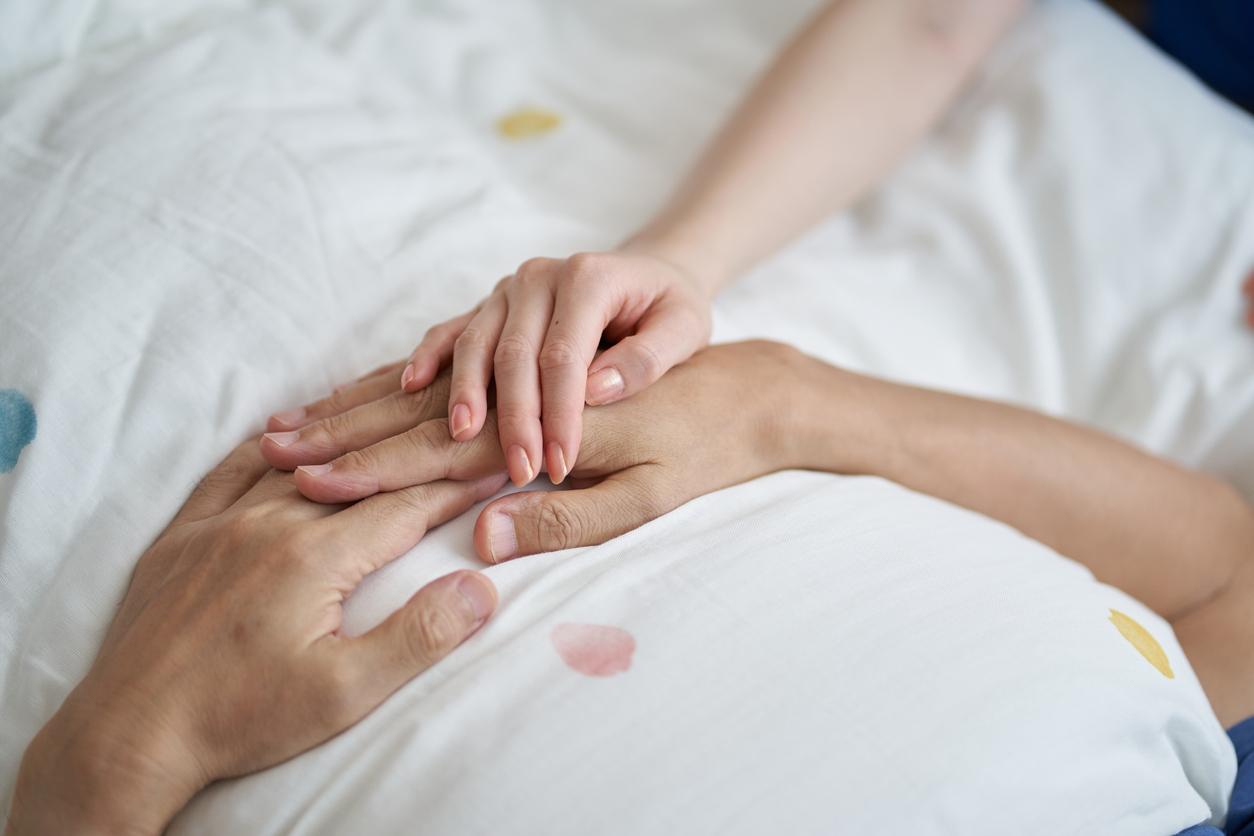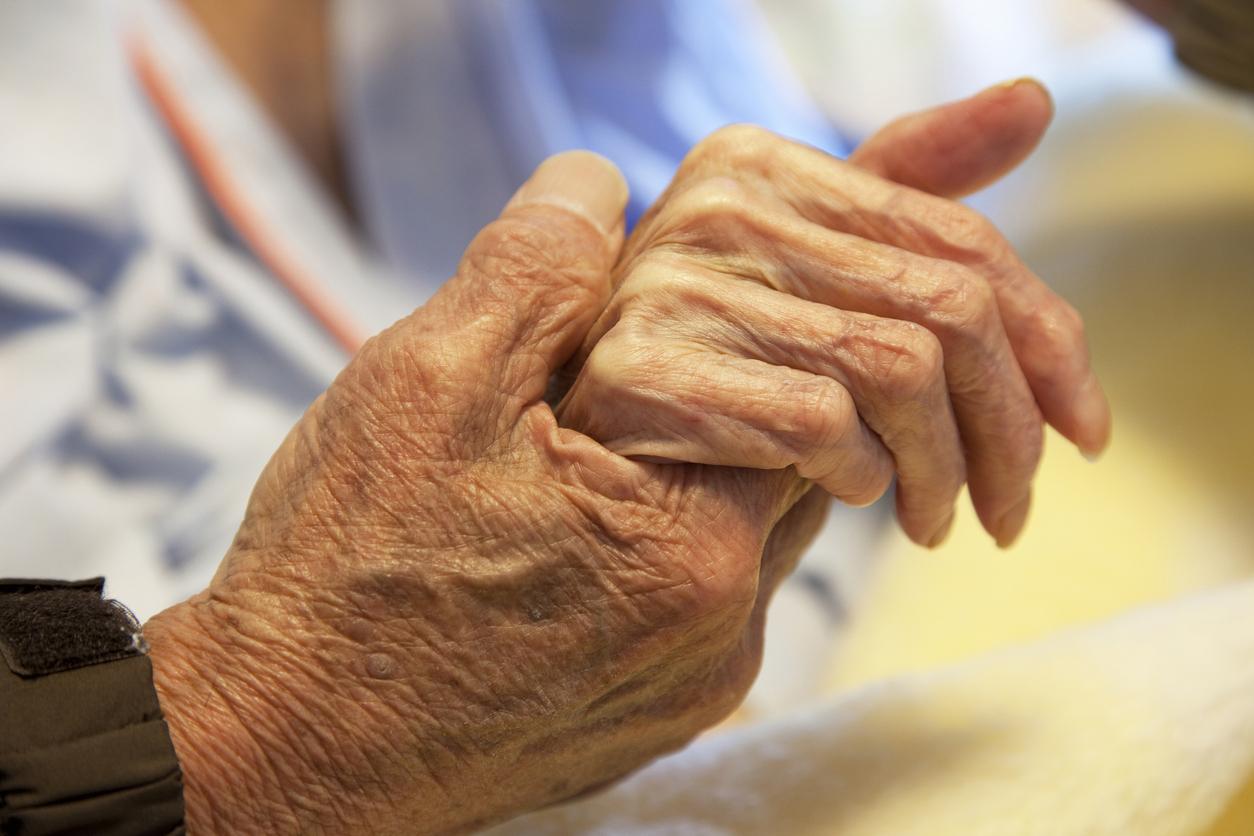A new law on the end of life prepared by the government should be debated in Parliament during the year 2024. After a presentation of the spirit of the text by the delegate minister Agnès Firmin-Le Bodo in the program “La Santé en Questions “, Why Doctor has launched a series of testimonies, portraits, interviews on this subject. Today, the answers from philosopher Michel Onfray, defender of legislative developments on euthanasia.

– Why Doctor: The government is working on developing a law on the end of life incorporating the possibility of authorizing active assistance in dying. You have personally declared yourself in favor of the possibility of euthanasia. Is it because your personal, intimate life has placed you face to face with this subject?
Michel Onfray: I was for euthanasia theoretically, on paper, long before finding myself directly concerned when Marie-Claude, my partner of thirty-seven years together, had breast cancer, then a recurrence with metastases, all of which lasted thirteen years, with seven years of non-stop chemotherapy. Marie-Claude was also in favor of euthanasia. But when the question could have been asked concretely, it was not addressed. I don’t know what motivated Marie-Claude’s silence, I don’t know what she knew, what she knew, if she knew that she only had a few weeks to live. I didn’t see anything: the denial was in full effect. And I only found out when a doctor told me she was going to die within three weeks. I then thought less about euthanasia than about killing her and then killing myself. It’s when we wonder how we’re going to do it that we stick to our intentions… I survived. But no one, except me, knows in what condition.
– The text does not mention the word euthanasia but speaks of “active assistance in dying”. For you, are these two different concepts or simply a fear of words?
Our time is incredibly stupid! It is the era of stupidity, of stupidity, of idiocy. We no longer call things as they used to, believing that by removing the word, we remove the thing: there are no longer blind people but visually impaired people, no more disabled people but people with disabilities, no more deaf but hard of hearing. There is therefore no longer euthanasia but active assistance in dying, which will soon give A2M! The words dead, corpses, deceased, die have given way to semantic avoidance: the deceased has left, our deceased has left us, our friend has joined the light, etc. Thanatopraxy wants to give the dead the appearance of the living: we put make-up on him, we powder him, we put lipstick on him, we stuff his cheeks with cotton, we comb his hair with lots of hairspray.
“The spectacle of a suffering being is the worst spectacle in the world”
The reason for this is very simple: the end of the Catholic story, in particular its consolation with the belief in the existence of life after death, has confronted man with the incapacity to think of death as an atheist. So he hides it under the carpet with a sweeping semantic sweep…
– You explain that suffering at the end of life, whether physical or psychological, justifies the legalization of active assistance in dying. But isn’t this suffering part of the human condition and as such is it justified to eliminate it at all costs?
Headaches are part of life and yet we take aspirin to get rid of them, decay also exists but we go to the dentist to remove it, myopia exists but we go to the optician to correct it . I don’t see the point in suffering except, I come back to this, a Christian mythological story which invites us to make of the Passion of Christ, that is to say his long suffering, his agony, of his tortures, a path to salvation.
The spectacle of a suffering being is the worst spectacle in the world, a proof of the inexistence of God at the same time as a proof of the absurdity of the world if we do not give it meaning ourselves – in this which concerns me: with philosophy.
For the moment the question is not For or against euthanasia but for or against wild euthanasia which currently takes place far from law and law, I know something about it, or for or against euthanasia within the framework of the law and the law.
“Let everyone have the choice: euthanasia or palliative care”
In other words: either euthanasia carried out piecemeal by doctors in tacit agreement with families outside the law, or euthanasia decided by doctors supervised by the legislator. Those who have the money can travel to countries where it is practiced, those who have connections in the medical world, in other words privileges, can also do so. But for the others ? It’s a double penalty…
– “We do not play with life,” Pope Francis has just declared on his return from Marseille. Do Christian morality, like the positions of other religions, have their place in this debate?
We must legalize euthanasia, which becomes a possibility and not an obligation. It is not because abortion is legalized that it is imposed on those who do not want it! Let everyone have a choice: euthanasia or palliative care. I am also for the fact that doctors refuse to practice it if it offends their conscience or their faith.
As for the Pope who wants terminally ill cancer patients to suffer in order to buy their salvation and have time to put their conscience in order, he is in a bad position to suggest that we should not play with life! What else does he do, who plays with the lives of others by imposing his law on them?
– Other intellectuals with whom you have spoken on this subject do not share your position on the right to euthanasia. Michel Houellebecq in some way opposes suffering “these little joys existing even at a diminished end of life”; and for Luc Ferry, “the demand for death can cover a demand for love” to which it would be, according to him, “unworthy” to respond with death. What do you answer them?
That I know these arguments, that they also know mine, because it is an old debate. But no one has invented and will never invent new ones.
– Can this possibility of benefiting from active assistance in dying be considered a new freedom?
Obviously, it is one: that of having control over oneself in the last days of one’s life and of considering that the State, that is to say the police and the justice system, as well as the religion, that is to say the church, the synagogue and the mosque, would be well advised to let the dying die as they wish by choosing euthanasia or palliative care for them. Each having moreover the right to contradict oneself – this is a Baudelaire formula – and to do at this moment of truth the opposite of what he proclaimed all his life.
– And if it is a new freedom, can we not oppose it, in a very materialist society, to the risk of a certain form of social pressure linked, for example, to the notion of uselessness? In other words, in a world where the most vulnerable are placed in nursing homes, should they not fear abuses that would cause them to be pushed to death tomorrow?
It is the absence of legislation which relegates the practice of euthanasia to individual outlaw tinkering which allows the killing of a person who does not wish to do so or has not done anything living will by saying that she wishes euthanasia for herself and mandates a person to ensure that this wish is carried out.
“I am for great intellectual debates on this subject”
For the moment, without the law, outside the law, despite the law, outside the law, euthanasia is probably carried out for personal convenience: families interested in inheritance or driven by hatred, happily adulterous husbands or wives. to regain a freedom lost in marriage, couples ravaged by hatred, bed managers, nursing staff dealing with mental illness…
– In moving forward with this bill on the end of life, the government is certainly relying on the opinion of the Academy of Physicians which is 75% favorable to the evolution of the law but also on a comparable opinion given by the convention citizen gathered on this subject or even on surveys which show an expectation shared by many French people. Wouldn’t this bill also be “populist”, a way of easily obtaining majority expression?
That a part of political politics enters into politicians is not a new idea! Mitterrand and the left have made it an issue for decades, a political marker. In power, they renounce it, as with the immigrant vote, sea serpent of politicians!
I am for major intellectual debates in the country on this subject, widely relayed by media forced by law, as in the case of a presidential campaign, to provide balanced and non-controversial discussions in order to allow the people to decide this question by referendum. The concern should not be whether it is populist or not but whether the people want it or not. In a democracy, the referendum is not populist. It’s throwing it in the trash when it’s not suitable that is reprehensible…
– However, this is a subject on which it seems difficult to comment with certainty. The example of the American state of Oregon where the right to assisted suicide has existed for 25 years shows that only a third of those who initiate the process to benefit from it go through to the end. Does this not call for putting into perspective the reality of the support of the greatest number of people for the liberalization of euthanasia?
I refer you to the right to contradict yourself: talking about the thoughts of the dying when you are seated in your chair is one thing. Finding yourself facing death, facing your death, is another. Not sure that the little joys de Houellebecq weigh very heavily in the face of nothingness. A first sip of beer, in the spirit of Philippe Delerm, as a remedy for annihilation? It’s a bit short as a substitute for great religious stories!















